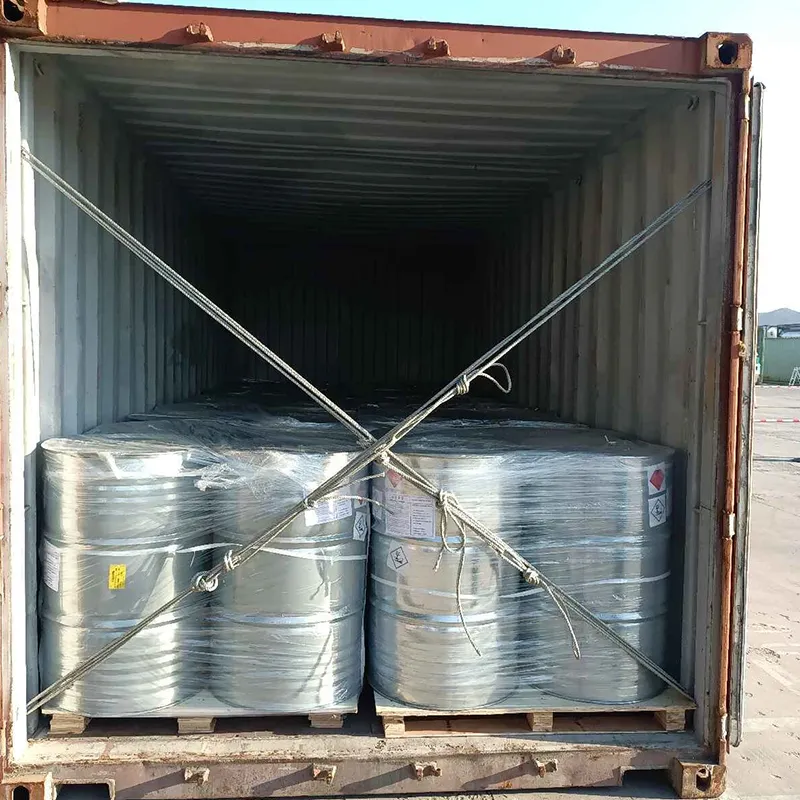
chilled water treatment chemicals
Chilled Water Treatment Chemicals Ensuring Efficient HVAC Systems
Chilled water systems are essential components of modern heating, ventilation, and air conditioning (HVAC) systems, commonly used in commercial buildings, industrial facilities, and large residential complexes. To maintain the efficiency and longevity of these systems, proper treatment with chemicals is crucial. This article explores the importance of chilled water treatment chemicals, their types, and the benefits they provide.
The primary goal of chilled water treatment is to prevent corrosion, scale formation, and biological growth in the cooling systems. These problems can lead to reduced efficiency, increased energy consumption, and potential system failures. A well-maintained chilled water system not only operates more efficiently but also extends its operational lifespan, ultimately reducing maintenance costs.
There are several categories of chilled water treatment chemicals. The most common include corrosion inhibitors, scale inhibitors, biocides, and pH adjusters. Corrosion inhibitors protect metal components within the system from deterioration caused by localized corrosion and electrochemical reactions. By forming a protective film on the metal surfaces, these inhibitors help maintain the integrity of pipes, valves, and other critical components.
chilled water treatment chemicals

Scale inhibitors are essential in preventing mineral deposits from accumulating within the system. Hard water, which contains high levels of calcium and magnesium, can lead to scale buildup on heat exchangers and piping. This scale not only restricts flow but also acts as an insulator, significantly reducing the heat transfer efficiency of the system. Scale inhibitors work by altering the crystallization process, keeping minerals suspended in the water and preventing them from adhering to surfaces.
Biocides are chemicals used to control microbial growth, which can thrive in warm, moist environments found in chilled water systems. Algae, bacteria, and slime can form biofilms that cause blockages and reduce overall system efficiency. Regular application of biocides helps to mitigate these biological threats and ensure that the system operates optimally.
Lastly, pH adjusters are crucial for maintaining the proper acidity or alkalinity of the chilled water. The optimal pH range for most applications is typically between 7.0 and 8.5. Deviations from this range can accelerate corrosion and scale formation, adversely affecting system performance.
In conclusion, the use of chilled water treatment chemicals is vital for the effective operation of HVAC systems. By implementing a comprehensive treatment program, facility managers can enhance efficiency, extend equipment life, and ultimately achieve substantial cost savings in operation and maintenance.
-
PE and PP Plastics with Benzotriazole AdditivesNewsJun.12,2025
-
How Glacial Acetic Acid Balances pH to Combat Food SpoilageNewsJun.12,2025
-
Food Additives in China: Embracing the GreenNewsJun.12,2025
-
Cyanide Mining Gold Extraction and the Rise of Complementary ChemicalsNewsJun.12,2025
-
Ammonium Nitrate in Pharmaceutical ManufacturingNewsJun.12,2025
-
Aluminum Hydroxide in Glass and Ceramics ManufacturingNewsJun.12,2025
-
Mining Chemicals: Cyanide in Gold MiningNewsJun.04,2025
Hebei Tenger Chemical Technology Co., Ltd. focuses on the chemical industry and is committed to the export service of chemical raw materials.
-

view more DiethanolisopropanolamineIn the ever-growing field of chemical solutions, diethanolisopropanolamine (DEIPA) stands out as a versatile and important compound. Due to its unique chemical structure and properties, DEIPA is of interest to various industries including construction, personal care, and agriculture. -

view more TriisopropanolamineTriisopropanolamine (TIPA) alkanol amine substance, is a kind of alcohol amine compound with amino and alcohol hydroxyl, and because of its molecules contains both amino and hydroxyl. -

view more Tetramethyl Thiuram DisulfideTetramethyl thiuram disulfide, also known as TMTD, is a white to light-yellow powder with a distinct sulfur-like odor. It is soluble in organic solvents such as benzene, acetone, and ethyl acetate, making it highly versatile for use in different formulations. TMTD is known for its excellent vulcanization acceleration properties, which makes it a key ingredient in the production of rubber products. Additionally, it acts as an effective fungicide and bactericide, making it valuable in agricultural applications. Its high purity and stability ensure consistent performance, making it a preferred choice for manufacturers across various industries.











